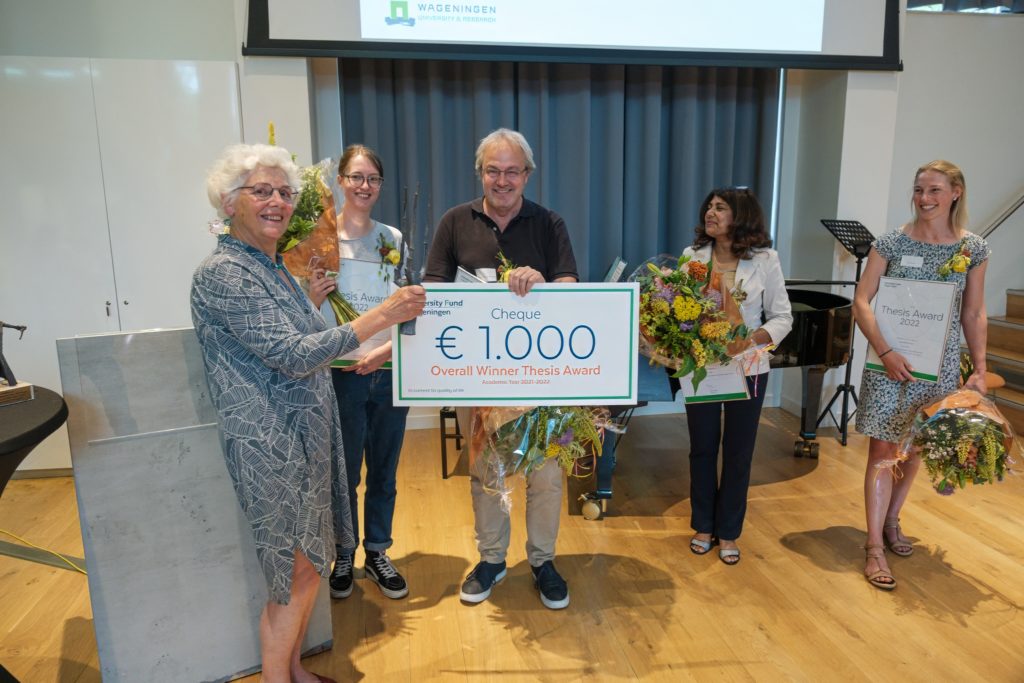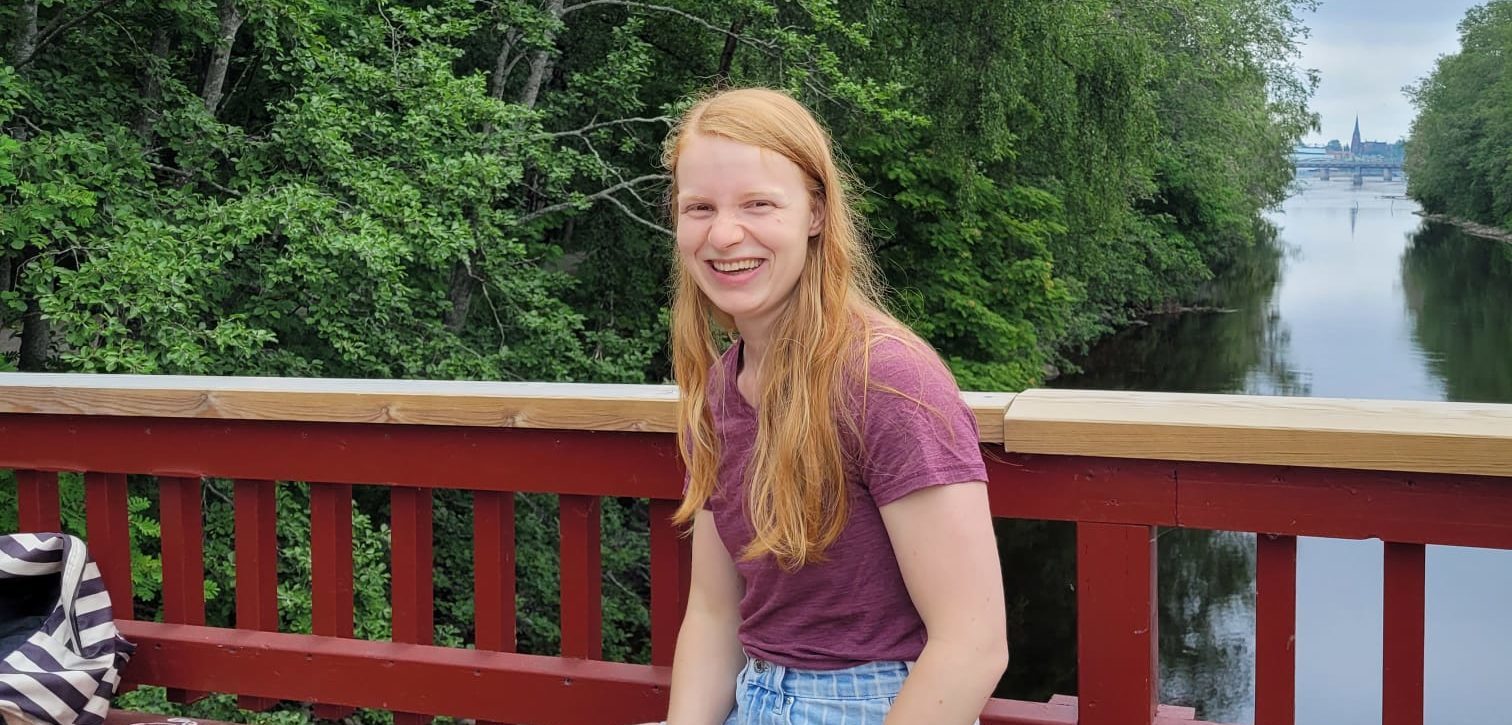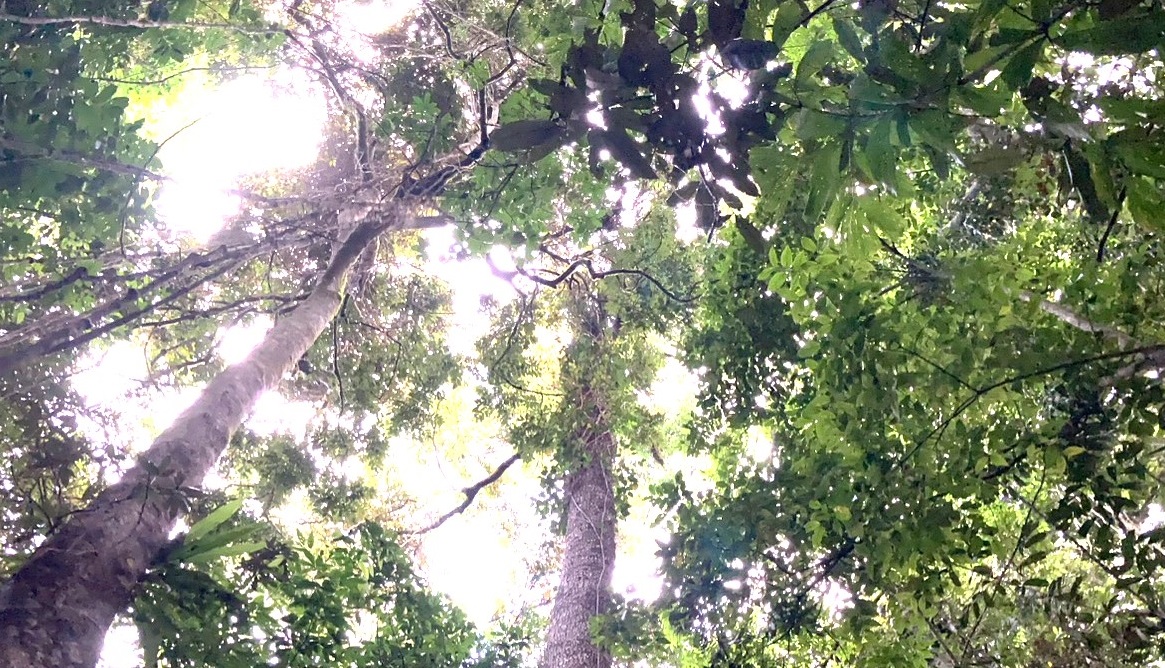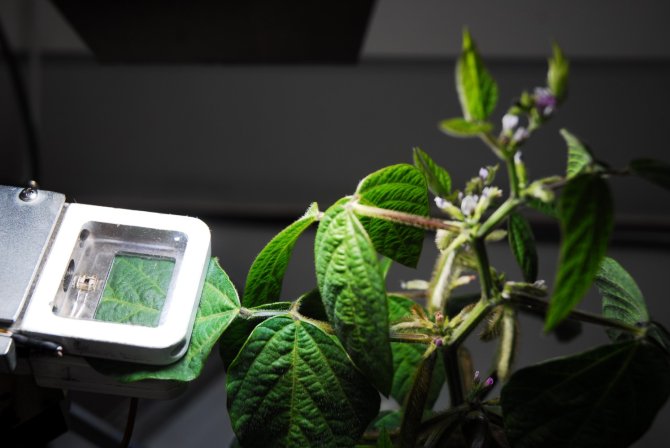It was raining education awards in Impulse on Tuesday, 20 June. The winners of four Excellent Education Prizes and the Teacher of the Year Award were announced. Additionally, the Thesis Awards were presented in four categories: life sciences, social sciences, environmental sciences and agrotechnology. Verhoeven’s thesis won the life sciences category, and she was the overall winner.
‘Dogma defying’, said the jury in reference to Verhoeven’s study on the light-absorbing mechanisms in plant leaves during photosynthesis. Why? Verhoeven: ‘During the daytime, the light contains all colours of the spectrum, but when the sun sets, there is more far-red light (the light at the beginning of the infrared spectrum, ed.). The same applies in the shade. Plants have various methods that enable them to absorb different colours of light. My thesis was about such a method. Precisely how this works at a molecular level is unknown, but there are various hypotheses. My work showed that several conventional hypotheses on the workings of these mechanisms are false.’
Verhoeven’s research exposed plants to different coloured light: blue and far red. Within ten minutes, the plants adapt to better absorb the different colours. ‘Photosynthesis occurs within the plant cell’, Verhoeven explains. ‘There are two “photo-systems” that are located a good distance apart that absorb light. In the ideal situation, these systems are in equilibrium. However, one photosystem absorbs slightly bluer, and the other absorbs slightly more far red light. When adjusting to different light circumstances, a protein travels back and forth between the two photosystems to create the ideal balance for photosynthesis. How the protein moves from one system to the other is yet unknown. One hypothesis argued that the protein breaks down before moving. A different hypothesis argued that the entire organisation within the chloroplast changes when the plant adjusts itself.
I have demonstrated that this does not happen, But we still do not know how the protein moves around.’ Insight into this type of mechanism could increase our understanding of photosynthesis, which could increase the efficiency of crop cultivation.

Less is more
Verhoeven was absent during the award ceremony in Impulse because she was at a photosynthesis congress in Sweden, where she presented her research. ‘Winning while being absent at the award ceremony is strange, and I can hardly believe it. There is so much research that is done at WUR, from social sciences to physical chemistry and everything in between. Having the jury select my thesis as the best is really bizarre. It is kind of great that I am at a congress at the very moment the ceremony is held. My research was well-received.’ Verhoeven’s study was published in Plant Physiology earlier this year. She is currently doing a PhD under her thesis supervisor Emilie Wientjes.
The award comes with a sum of one thousand euros. ‘I don’t yet know when or where, but I think I will take a nice vacation.’
The winners
Life sciences: Dana Verhoeven (Biophysics)
- ‘In folio imaging of photosystem energy distribution and grana macro-organization during state transitions’
- Supervisors Emilie Wientjes and Herbert van Amerongen.
Social sciences: Max van Deursen (Environmental Policy Group)
- ‘Capacity Building for Climate Transparency as de facto governance’
- Supervised by Aarti Gupta and Susanne Konrad.
Agrotechnology and Food sciences: Aimee Kok (Physical Chemistry)
- ‘Laser speckle imaging for resolving heterogeneous dynamics in three spatial dimensions’
- Supervised by J. van der Gucht and Jesse Buijs
Environmental sciences: Lisa Boterman (Soil Geography and Landscape)
- ‘Counterpoint deposition in the Netherlands: a case study of the Waal River by Nijmegen’
- Supervised by Jakob Wallinga

 Photo Dana Verhoeven
Photo Dana Verhoeven 

